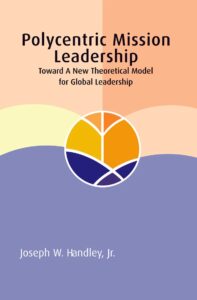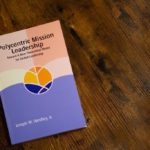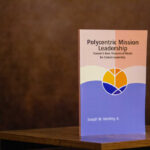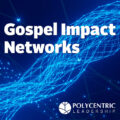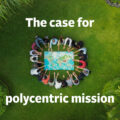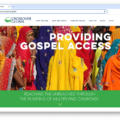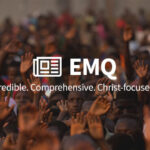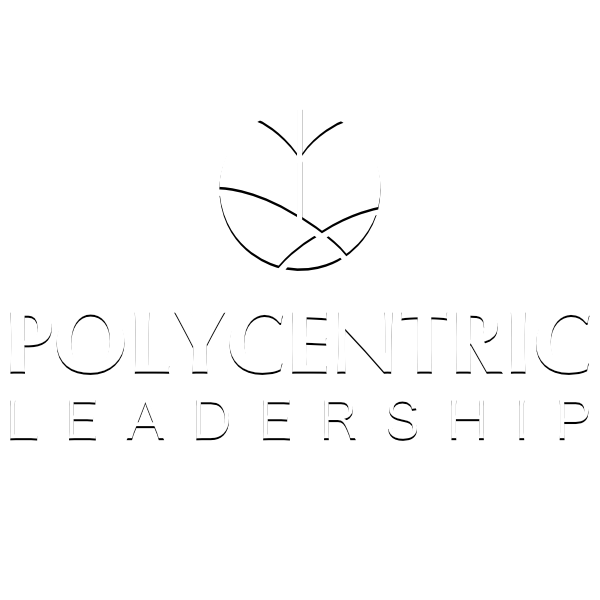Covenant Quarterly 81:2 – https://covquarterly.com/index.php/CQ/issue/view/25/7
Polycentric Mission Leadership – Book Review
Joseph W. Handley Jr., Polycentric Mission Leadership: Toward a New Theoretical Model for Global Leadership (Oxford, UK: Regnum Books, 2022), 191 pp., $16.99.
BOOK REVIEW BY PETER SUNG
Joe Handley describes our world as increasingly complex, disrupted, and challenged, a world hurting for a new approach to leadership that is less hierarchical, less centralized, more collaborative, and more multi-sourced—namely, polycentric. Polycentric leadership aims to operate from many centers. Handley, currently serving as CEO of A3 (formerly Asian Access), writes for an audience encountering similar challenges in their own highly globalized contexts. The essential theory he presents grew out of his own experiences. His PhD studies confirmed that his ideas are not new, but well-practiced historically. Handley doesn’t articulate an entirely original theory; rather, he organizes and adds his own layers and angles to a preexistent one.
In chapter one, Handley describes our rapidly changing world where historical leadership models practiced by default for decades are failing in their deliverables. A centralized model, Handley argues, simply does not fit or work sufficiently. In contrast, “decisions that are just in time and appropriate for the local context” (22) can result from a collaborative, decentralized leadership that embraces different contexts, cultures, and moments. In chapter two, he establishes polycentric leadership as a historical practice and argues against one-way leadership in favor of multi-directional leadership, a kind of perichoretic dance as found in the Trinity. Chapter three brings the reader from theory to praxis. Using Ephesians 4, the GLOBE leadership study, and examples from General Stanley McChrystal (which I particularly appreciated given my love for his book Leaders: Myth and Reality), Handley begins to add texture, color, and emotion to what polycentric leadership could look like when applied.
Chapter four presents the segment of a dissertation in which other leadership models are examined. Handley utilizes Allen Yeh’s polycentric missiology concepts to describe his own polycentric mission leadership, which is described by the following values: collaborative, communal, diverse, free, relational, and charismatic. Handley recognizes his new model is untested and recommends further examination. Handley spends chapter five unpacking his qualitative research interviews with thirty-three Lausanne Movement leaders and organizes themes and threads into the above values. Finally, in chapter six, Handley looks ahead by applying polycentric leadership to the Lausanne Movement as well as to other mission movements, and in doing so, he points toward future studies needed to fully flesh out polycentric leadership.
Polycentric mission leadership is needed more than ever in “such a time as this.” For many of us, the pandemic years have accelerated our desire for leadership that is less hierarchical, more willing to share power, and in a word, humble. Jesus, pointing to how other leaders sought power and position, told his disciples it was “not so among you” (Matt 20:26). Handley points to a “not so among you” form of leadership. While the Spirit of God is moving all of us toward that city where Christ shall reign as “Lord of lords and King of kings” (Rev 17:14), at present we find ourselves in contexts, cultures, and moments that require all kinds of leadership styles, polycentric included. These styles may act as layers to be added onto other styles, eschewing false dichotomies. Handley’s desired outcome is not the exclusive practice of a certain style but ultimately the achievement of “better and more representative outcomes,” and “decisions that are just in time and appropriate for the local context” (22). In the end, Handley is practicing what he preaches by offering his own observations as a fellow collaborator and practitioner among other global collaborators and practitioners. For Handley, polycentricism is not only relevant but imperative in our ever-changing world as the nature of mission shifts from centrism to “from everyone to everywhere” (48). If you desire to lean in and engage rather than insulate and judge our cultural moment, Polycentric Mission Leadership might be the agility handbook for your adaptive Christian leadership practice.
PETER SUNG
Director of Church Planting
Pacific Northwest Conference
Evangelical Covenant Church
Seattle, Washington

Peter Sung serves the PacNWC and the ECC/SSC as an executive coach and organizational psychologist, working with leaders broadly and in the church planting domain. Peter holds degrees in English Literature (University of Michigan), Theology (Gordon-Conwell Theological Seminary), and Psychology (University of Western States). He is an ICF coach and ordained by the Evangelical Covenant Church.
Peter lives in Seattle with his beloved Susie, their four daughters, Emelyn, Madelyn, Sophia, and Amelia, and their Irish-doodle, Hobbes. He enjoys being active, good food, and keeping his mind busy.
More Information
 This book review was originally published here… https://covquarterly.com/index.php/CQ/issue/view/25/7 (login required) and has been reposted with permission.
This book review was originally published here… https://covquarterly.com/index.php/CQ/issue/view/25/7 (login required) and has been reposted with permission.

